Thingiverse

Canon EF Adapter For Amscope M600A Microscope by NightRunner417
by Thingiverse
Last crawled date: 3 years ago
IMPORTANT NOTE - Updated 11/16/16 7:59PM EST to fix some tolerance issues on the camera-side threading. Should fit much better now. Also, added a slot at the tube so that if your camera is rotating on its own due to balance issues, you can slip a pipe or hose clamp over the tube to lock it in place.
Presto.... This is a Canon EF to Amscope M600A microscope adapter. This is meant to attach the camera WITHOUT LENS to the microscope WITHOUT EYEPIECE for direct projection to the camera sensor. DO NOT attempt to force this thing onto the microscope with an eyepiece in it, or you're apt to have one very jammed eyepiece stuck in a big piece of printed plastic. This was specifically made to slide snugly over the microscope's 26mm diameter eyepiece tube. As such, it will probably work with a lot of Amscope's microscopes, and perhaps other makes as long as they have the right diameter eyepiece tube. This could easily be modified to slip over other microscope's eyepiece tubes as long as they are straight without any flanges or whatever, so if you'd like to see me do something for a specific scope, send me a nudge and some measurements and I'll see what I can do.
One little side note: Although direct projection microphotography can be absolutely some of the best you've ever seen, it can also produce some anomalous results. For one, throw your ideas of magnification out the window. Direct projection produces images of a far higher magnification than the eyepiece and objective lens combo you are used to will produce, so expect things to be a bit more zoomy... or a lot more zoomy, frankly. Second thing, I've seen my own setup produce a coma effect in the lighting, especially at lower powers. I haven't found ways to eliminate that, just to reduce it. Third thing, you may see specks in your photos, due to the highly collimated light path and any dust on your camera sensor. There's never been a better time to learn how to clean your camera sensor, and that's the only option other than Photoshopping the specks out later. It's life.
Good luck, have fun, and of course feel free to post comments or questions.
NR417
Presto.... This is a Canon EF to Amscope M600A microscope adapter. This is meant to attach the camera WITHOUT LENS to the microscope WITHOUT EYEPIECE for direct projection to the camera sensor. DO NOT attempt to force this thing onto the microscope with an eyepiece in it, or you're apt to have one very jammed eyepiece stuck in a big piece of printed plastic. This was specifically made to slide snugly over the microscope's 26mm diameter eyepiece tube. As such, it will probably work with a lot of Amscope's microscopes, and perhaps other makes as long as they have the right diameter eyepiece tube. This could easily be modified to slip over other microscope's eyepiece tubes as long as they are straight without any flanges or whatever, so if you'd like to see me do something for a specific scope, send me a nudge and some measurements and I'll see what I can do.
One little side note: Although direct projection microphotography can be absolutely some of the best you've ever seen, it can also produce some anomalous results. For one, throw your ideas of magnification out the window. Direct projection produces images of a far higher magnification than the eyepiece and objective lens combo you are used to will produce, so expect things to be a bit more zoomy... or a lot more zoomy, frankly. Second thing, I've seen my own setup produce a coma effect in the lighting, especially at lower powers. I haven't found ways to eliminate that, just to reduce it. Third thing, you may see specks in your photos, due to the highly collimated light path and any dust on your camera sensor. There's never been a better time to learn how to clean your camera sensor, and that's the only option other than Photoshopping the specks out later. It's life.
Good luck, have fun, and of course feel free to post comments or questions.
NR417
Similar models
thingiverse
free

Canon EOS to 24mm ID tube - microscope adapter by mikeeg555
...focus sharp, even without the eyepiece.
i found the t-ring mount to be a bit loose on the camera, but tight enough to hold it up.
thingiverse
free

Canon EF lens to spyglass coverter by Facocero
... be upside down, but never mind, the magnification achieved is remarkable ;)
tested on sigma 28-300mm lens
that works with barlow
thingiverse
free

Amscope Microscope collection - Raspberry Pi Camera V2 by Jahmez
... in the tinkercad link i provided.
i'll be updating this with photos of each eyepiece once i fix issues with my raspberry pi.
thingiverse
free

Canon EF lens to Spyglass/Telescope coverter v2 by Facocero
...ention to the view will be upside down, but never mind, the magnification achieved is remarkable ;)
tested on sigma 28-300mm lens
thingiverse
free

Camera Macro Lens and Microscope Adapters by ednisley
...s by ednisley
thingiverse
two adapters for a canon sx230hs pocket camera:
- macro lens with led light ring
- microscope eyepiece
thingiverse
free

Microscope adapter for Logitech web-cam lets you shoot video through your microscope by the_digital_dentist
... there are other cameras that have easier shapes to design around and better video performance, but this is the one i had handy.
thingiverse
free

Canon EF extension tube set by SkyRzn
...ave canon_ef_extension_tube.py and opyscad.py in the same directory and run canon_ef_extension_tube.py in the python interpreter.
thingiverse
free

AmScope Phone Holder by mikerockbennett
...ope phone holder by mikerockbennett
thingiverse
an adapter for centering your phone over the 25x lens of the amscope microscope.
thingiverse
free

Spyglass Canon EF/M42 by kborisov
... get a zoom spyglass or very fast spyglass (with f/1.8 lens for example).
25mm eyepice and 200mm lens result in 8x magnification.
thingiverse
free

EF Mount Socket by axelerator
...39;s the part you can snap a lens into.
so you could for example build a lens cap for the end that's attached to the camera.
Nightrunner417
thingiverse
free

Mounting Bracket For Enclosures And Boxes by NightRunner417
...ing. as usual, i recommend a strong, springy plastic like nylon or petg since this part really needs to be able to endure stress.
thingiverse
free

Assorted Spacers by NightRunner417
...pth by 846% and you'll have a perfect spacer for a 1" diameter screw or bolt, though admittedly ridiculously bulky.. ;-)
thingiverse
free

Basic Pulse Wheel by NightRunner417
...ted in petg, this thing spins very nicely on a #4 machine screw, although it could be tightened down a bit to cut down on wobble.
thingiverse
free

Round Furniture Or Appliance Foot by NightRunner417
...e of one of the greatest aspects of 3d printers - no more trips to the hardware store for $2 a pair cheap-ass furniture feet! ;-)
thingiverse
free

Bolt Blank 1 by NightRunner417
...e applications.
default dimensions of this bolt blank are:
10mm head width
3.7mm head height
6mm shaft diameter
27mm shaft length
thingiverse
free

50mm Easy Print Spool by NightRunner417
...convenient slots for passing wire, thread or whatever through for easy tie off or making coils or whatever.
have fun!
rick nr417
thingiverse
free

9mm X 4.25mm X 1.5mm Washer by NightRunner417
...ith filament tension, and my success can now be yours! b-)
in the photo - yeah baby, that's aluminum under them washers! :-).
thingiverse
free

Right Angle Bracket For Enclosures and Boxes by NightRunner417
...s, but i simply cut the holes in the lexan a bit small so that the machine bolts tapped into them, and it worked out well enough.
thingiverse
free

Basic Ventilation Port For 2.5" Vacuum Cleaner Hose by NightRunner417
...n was made for this "dust collection hose" available from amazon, which has an outside diameter of approximately 68mm.
thingiverse
free

ESun Spool To 13mm Shaft Adapter by NightRunner417
...is petg is far better behaved. also, they have some truly pretty translucent colors. try the translucent blue, it's gorgeous.
Amscope
thingiverse
free

AmScope Phone Holder by mikerockbennett
...ope phone holder by mikerockbennett
thingiverse
an adapter for centering your phone over the 25x lens of the amscope microscope.
thingiverse
free

AmScope SM4 Len Cover by sn4k3
...n cover by sn4k3
thingiverse
easy to remove and put len cover for amscope sm4 and similars.
just a box...
i print with clear pla
thingiverse
free

Amscope microscope dovetail/M42 ring adapter by Saul_G
...th the reichert tube lens, it means amscope microscope can be converted to use with infinity type objectives for the photography
thingiverse
free

AmScope Raspberry Pi camera upgrade by hackerfriendly
...in the plastic with a soldering iron and screw the board in place.
more details here: http://hackerfriendly.com/amscope-upgrades/
thingiverse
free

Amscope SE400 Series Microscope LED Light Adapter by JoeyFitzp
...d-144b-zk-adjustable-microscope-adapter/dp/b016nbasbk/ref=sr_1_6?ie=utf8&qid=1503790826&sr=8-6&keywords=amscope+light
thingiverse
free

Raspberry HQ Camera to AmScope adapter by mgx
...knob focus mechanism on the scope.
single piece, prints without support and the threads should work even at 0.200mm layer height.
thingiverse
free

AmScope Boomstand Microscope Additions by Wampo
...hortly with a lighter and push the ring on the lens)
24/03/19 added toptray for ø32mm rods
if you like it, please leave a tip ;-)
thingiverse
free

AmScope SE-400 Len Cover by sn4k3
... se-400 len cover by sn4k3
thingiverse
i made this part to replace original lens cover, since my have burn out.
use 3 perimeters
thingiverse
free

Amscope 4 plan microscope objective to Nikon F-mount by Kajashey
...o pictures.
to read a review of the objective check here...
https://www.closeuphotography.com/seventeen-dollar-plan-4x-objective/
thingiverse
free

Amscope Inspection Raspberry Pi adapter by jgilbert
...y scope needs a slight eccentric mount, your milage will vary.
designed in autodesk fusion 360.
designed for a m2 machine screw/
Ef
3ddd
$1

EFE Low Chair
... ziru , francesc rife
efe low chair design by francesc rifé for ziru.
3d_export
$17

Eurofighter EF-2000
...eurofighter ef-2000
3dexport
eurofighter ef-2000
turbosquid
$2

Efe Table
... available on turbo squid, the world's leading provider of digital 3d models for visualization, films, television, and games.
cg_studio
$169

EF-1113d model
...ef-1113d model
cgstudio
.3ds .lwo .max - ef-111 3d model, royalty free license available, instant download after purchase.
turbosquid
$2

Efe 001 chair
... available on turbo squid, the world's leading provider of digital 3d models for visualization, films, television, and games.
3ddd
$1

Mitsubishi Electric MSZ-EF
... кондиционер
mitsubishi electric msz-ef
в архиве присутствуют рендеры большого разрешения.
3ddd
$1

Canon EFS 55-250mm
...ив , canon
объектив canon efs 55-250mm, модель полностью разбирается для разных режимов.
turbosquid
$30

honda ef si-R
...bosquid
royalty free 3d model honda ef si-r for download as on turbosquid: 3d models for games, architecture, videos. (1440719)
turbosquid
$19

Beer Can Efes 500ml
...royalty free 3d model beer can efes 500ml for download as max on turbosquid: 3d models for games, architecture, videos. (1201525)
cg_studio
$15

EF-2000 Typhoon3d model
... model
cgstudio
.3ds .dxf .lwo .obj - ef-2000 typhoon 3d model, royalty free license available, instant download after purchase.
Microscope
archibase_planet
free

Microscope
...roscope
archibase planet
microscope optical microscope
microscope n180314 - 3d model (*.gsm+*.3ds) for interior 3d visualization.
archibase_planet
free

Microscope
...microscope
archibase planet
microscope medical facilities
microscope - 3d model for interior 3d visualization.
archibase_planet
free

Microscope
...microscope
archibase planet
microscope
microscope n031107 - 3d model (*.gsm+*.3ds) for interior 3d visualization.
archibase_planet
free

Microscope
...microscope
archibase planet
microscope laboratory equipment
microscope - 3d model (*.gsm+*.3ds) for interior 3d visualization.
archibase_planet
free

Microscope
...planet
microscope medical apparatus medical facilities
microscope n180608 - 3d model (*.gsm+*.3ds) for interior 3d visualization.
3d_ocean
$16
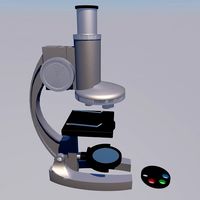
Microscop Toy
...microscop toy
3docean
game games microscop microscop toy play science toy
microscop model toy with materials
turbosquid
free

Microscope
...pe
turbosquid
free 3d model microscope for download as blend on turbosquid: 3d models for games, architecture, videos. (1607423)
turbosquid
$19

Microscope
...bosquid
royalty free 3d model microscope for download as max on turbosquid: 3d models for games, architecture, videos. (1514032)
turbosquid
$19

Microscope
...bosquid
royalty free 3d model microscope for download as max on turbosquid: 3d models for games, architecture, videos. (1514017)
turbosquid
$18

Microscope
...bosquid
royalty free 3d model microscope for download as max on turbosquid: 3d models for games, architecture, videos. (1176709)
Canon
3d_export
$5

canon
...canon
3dexport
canon/obj/powpoly
3ddd
free
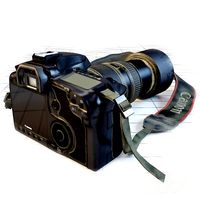
Canon 5D
...canon 5d
3ddd
canon , фотоаппарат
canon 5d
turbosquid
$3
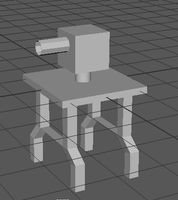
Canon
...on
turbosquid
royalty free 3d model canon for download as ma on turbosquid: 3d models for games, architecture, videos. (1342900)
3d_export
$7
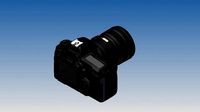
canon-5d
...canon-5d
3dexport
canon-5d
turbosquid
$90
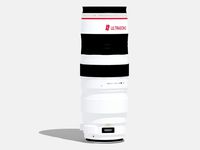
CANON
... available on turbo squid, the world's leading provider of digital 3d models for visualization, films, television, and games.
turbosquid
$35

CANON
... available on turbo squid, the world's leading provider of digital 3d models for visualization, films, television, and games.
3d_export
$6
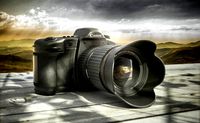
canon camera
...canon camera
3dexport
high poly model of camera canon
3ddd
$1
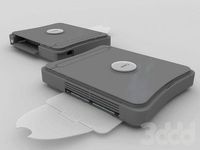
Ксерокс Canon
...ксерокс canon
3ddd
canon , ксерокс
буду рад, если кому-нибудь пригодится.
3d_export
$18
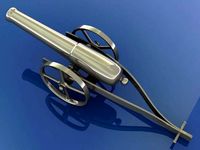
Canon 3D Model
...canon 3d model
3dexport
canon decoration broze gold objects
canon 3d model sarnidesign 401 3dexport
turbosquid
$8

Grandred-Canon
...osquid
royalty free 3d model grandred-canon for download as on turbosquid: 3d models for games, architecture, videos. (1271796)
Adapter
3d_export
$10
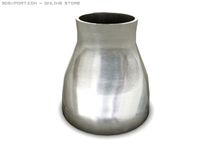
Adapter 3D Model
...adapter 3d model
3dexport
adapter
adapter 3d model mur 20260 3dexport
archive3d
free
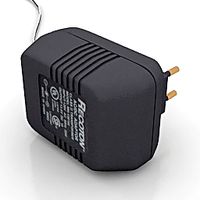
Adapter socket 3D Model
...dapter socket adapter
adapter socket n090211 - 3d model (*.3ds) for interior 3d visualization.
turbosquid
$400

cell adaptation
...
royalty free 3d model cell adaptation for download as blend on turbosquid: 3d models for games, architecture, videos. (1701655)
archive3d
free
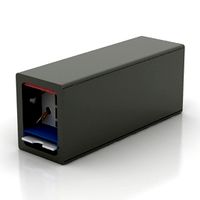
Adapter 3D Model
...ups pc equipment
adapter extron n180813 - 3d model (*.gsm+*.3ds) for interior 3d visualization.
turbosquid
$5
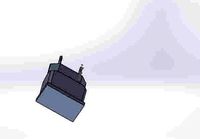
usb adapter
...royalty free 3d model usb adapter for download as ige and stl on turbosquid: 3d models for games, architecture, videos. (1582234)
turbosquid
$15
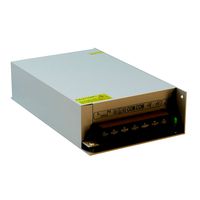
Power adapter
...free 3d model power adapter for download as max, obj, and fbx on turbosquid: 3d models for games, architecture, videos. (1510024)
turbosquid
$8
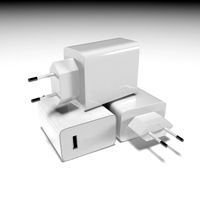
USB adapter
...e 3d model usb adapter for download as max, fbx, obj, and dwg on turbosquid: 3d models for games, architecture, videos. (1713542)
turbosquid
$30
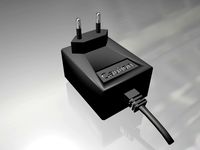
adapter.3ds
... available on turbo squid, the world's leading provider of digital 3d models for visualization, films, television, and games.
turbosquid
$15
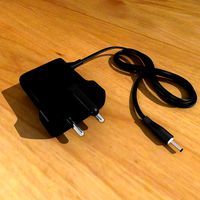
Nokia Adapter
... available on turbo squid, the world's leading provider of digital 3d models for visualization, films, television, and games.
turbosquid
$15
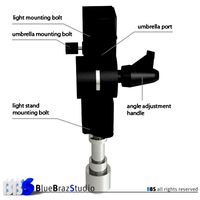
Universal adapter
... available on turbo squid, the world's leading provider of digital 3d models for visualization, films, television, and games.
